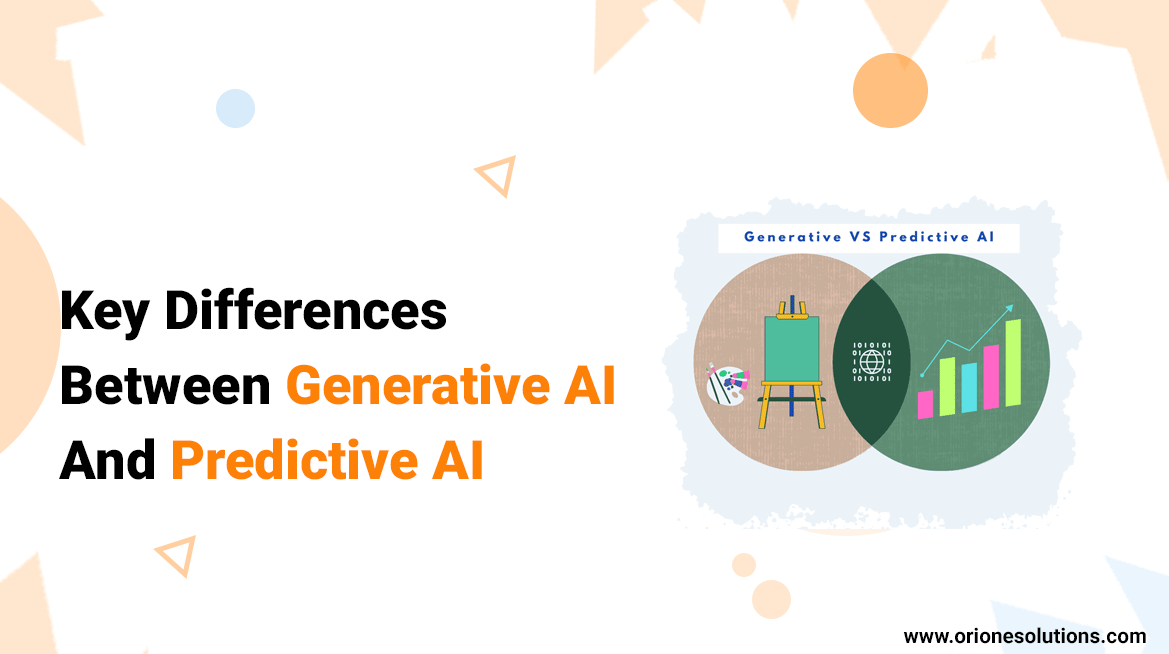Innovation and advancements in technologies like AI are taking place with the emergence of tools such as ChatGPT and more. It signifies that businesses looking to streamline their operations and other workflows need to leverage Artificial Intelligence.
According to a recent survey by Forbes, the AI market size is expected to be valued at $1,811.8 billion by the year 2030. Moreover, several businesses across varying industries, from entertainment and healthcare to finance and eCommerce are adopting AI development services to make the most out of this technology and change the way they interact with customers.
The two major AI types driving such growth and continuous changes in the technological landscape are Generative AI and Predictive AI. Together, these two technologies can bring automation into action. However, both are different and beneficial in their own ways.
So, in this write-up, we will explore the things that differentiate both Generative AI vs Predictive AI from one another.
Overview of Generative AI
Generative AI can be referred to as a system capable of creating advanced content like text, images, and audio that seems natural and not machine-generated. Its working depends on the large datasets that help to recognize user patterns and produce content accordingly.
Usually, the Generative AI development processes are completed using neural works. It is a sort of algorithm designed after the human brain. With Generative AI, automating repetitive and time-consuming tasks such as email classification, data entry, and more become easy. It further enhances productivity. But remember that generative AI creates hassles if personal information is utilized without consent.
Overview of Predictive AI
Predictive AI is more focused on making future predictions by leveraging historical data. It leverages algorithms to assess huge datasets and examine varying users’ buying patterns to make informed predictions. Predictive AI is widely adopted in businesses across industries such as healthcare, finance, and marketing.
When it comes to predictive maintenance, it helps monitor sensor data to determine any failure of equipment while reducing downtime. However, while leveraging Predictive AI, expect data privacy and security concerns.
Understanding the Major Difference Between Generative AI vs Predictive AI
Though both fall under the AI category, Generative AI and Predictive AI vary in terms of capabilities, feature set, and applications. Let’s dive directly into understanding these distinctions.
Key Development Goals
Generative AI development dedicatedly involves the production of visual works from scratch. It involves images, audio, and other outliers like product designing, coding, etc. The primary purpose of any Generative AI development company is to leverage the methodology to help businesses and entrepreneurs dive into more innovative and robust software development processes.
Predictive AI, on the other hand, helps evaluate the trends based on the history and predict possibilities of occurrences of customer behavior, changing market trends, or any possible vulnerabilities. Further, it facilitates better decision-making.
Data Quality for Accurate Output
The output with Generative AI is completely natural, new, and relevant. In a nutshell, you achieve information in an original form.
A predictive AI algorithm is used to analyze and find datasets to provide predictions that are based on guesses with a set of previous patterns or histories. For instance, Predictive AI can be used to predict the chances of loan default, increased customer inquiries, or growing demand for any services or product.
Data Handling Methods
Generative AI leverages complex iterative algorithms that are trained to recognize the patterns and relationships in the training data set. Furthermore, new data points with a comparable structure can be produced using this data.
On the contrary, Predictive AI makes use of a variety of ML and statistical methods. It includes data analysis, regression, classification, and pattern recognition. Using these patterns, it creates models that can precisely and accurately predict future possibilities.
Training Input Data
Generative AI operates across several datasets with numerous instances. These datasets of several kinds can summarize text, audio, or source code, based on the app type. The size of the dataset grows, allowing AI to get better and learn more.
The Predictive AI process can be simplified with small and defined datasets, depending on the types of predictions to be made. The techniques it follows include:
- Managed learning
- Linear regression
- Decision-making trees
All these tactics are designed for data evaluation, identifying patterns, and predicting future outcomes.
Evaluation
Generative Artificial Intelligence sets up qualitative and subjective factors that rely on human guesses. For instance, innovation, ideation, and the ability to catch the user’s attention.
On the other hand, Predictive artificial intelligence (AI) makes use of variables like accuracy and precision, which are then used to calculate the model’s predictive capability.
Easy Interpretability
The process by which generative AI models generate their final outputs can be unimaginable due to their tendency to be cryptic in their reasoning. It creates problems because customers who seek interpretability and openness could become suspicious.
Users can expect a certain level of interpretability from predictive AI models since they can depict the relationship between observations and conclusions. The estimates are easy to explain as these are based on true statistics and numbers. Thus, it makes it possible to evaluate the variables influencing the predictions.
Use Cases
Generative AI is highly employed for content generation. It can be also leveraged to produce unique designs, music, visuals, audio, and videos. The data generated is usually artificial which helps train several AI-based models.
Predictive AI is leveraged in financial trend predictions, market forecasting, and diagnostics in healthcare. Also, it helps in understanding customer buying patterns and behaviors.
Learning Curve
Generative AI requires a minimal to no learning approach. It simply means the algorithm works without any labeled data and helps discover the data patterns that are hidden.
Predictive AI utilizes well-managed learning. Hence, the models are trained and data is labeled to ensure better mapping from input to expected data output.
Ethical Considerations
In the case of Generative AI, there are several concerns such as misuse of unique and real content. Here, leveraging robust authentication tactics can help address the concerns while retaining trust.
Predictive AI comes with several privacy concerns as it leverages huge datasets to make future predictions. Here, continuous monitoring and implementation of best practices and methodologies are required to eliminate the risks while ensuring the ethical application of predictive AI.
Final Thoughts
Both AIs serve as examples of artificial intelligence, each providing special advantages and uses. The use of AI technology in a variety of contexts, such as customer service chatbots, SEO enhancements, or educational initiatives, will become more crucial as the technology continues to expand.
Generative AI vs Predictive AI, both have the potential to produce more creative solutions, increase effectiveness, and ensure better results for businesses across a variety of industries. Thus, embracing these technologies and seeking AI consulting services can influence how businesses engage with data in the future while solving operational concerns.
However, to decide between both models, seeking assistance from us would be ideal. We are an AI software development company that considers everything from resource availability to development goals and more to leverage the technology more efficiently.
Frequently Asked Questions
Q1: What is the main difference between Generative and Predictive AI?
Answer: The key difference is when you choose Generative AI for development, you benefit from creating new, relevant, and original content. On the other hand, Predictive AI helps make future predictions and trends based on historical data.
Q2: Can I leverage both Generative AI and Predictive AI together?
Answer: Yes, both methodologies can be leveraged simultaneously. For instance, Generative AI can be employed to produce ready-made data that can be helpful in enhancing the training of predictive models. Also, the Predictive AI can be used to forecast the performance of Generative AI’s produced content.
Q3: What is the difference between training processes and algorithm processes?
Answer: Generative AI usually requires the contribution of deep learning algorithms such as VAEs and GANs to produce unique content. The training process of the predictive models involves understanding the patterns.
On the other hand, Predictive AI depends more on machine learning algorithms and historical information to identify trends and relationships.
Q4: Which approach of both is more resource-intensive?
Answer: Usually, the generative AI models need training data and other computational resources. The reason is producing unique content is a more complex task than predicting outcomes.
However, the resource requirements can completely vary based on use cases and the AI model complexity involved.









